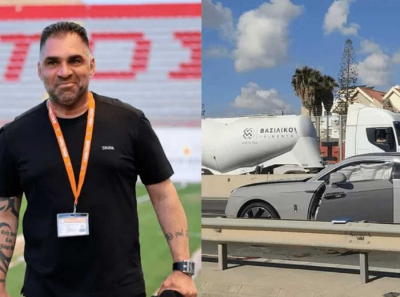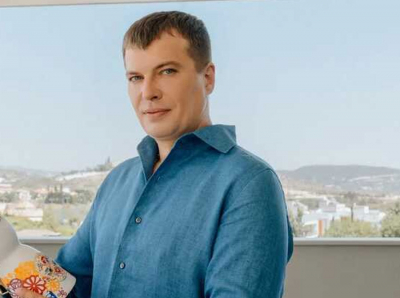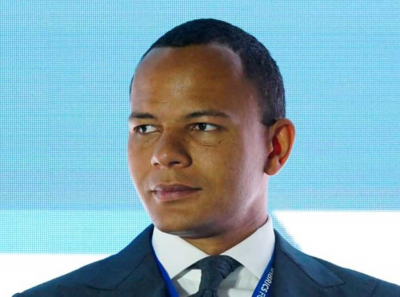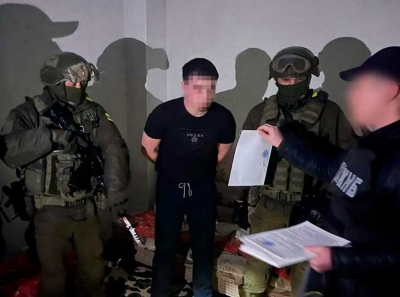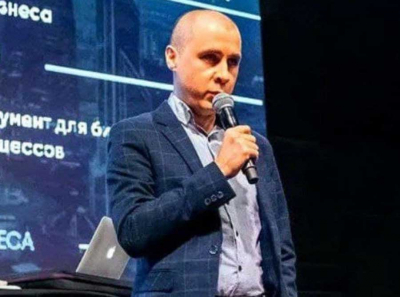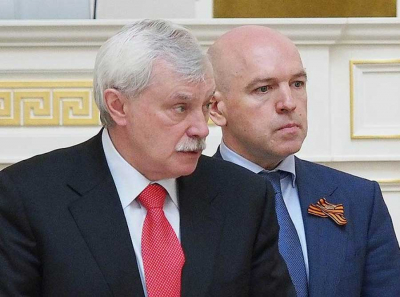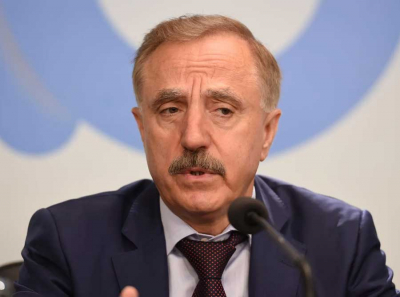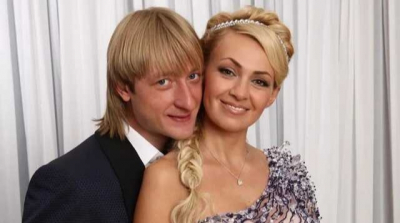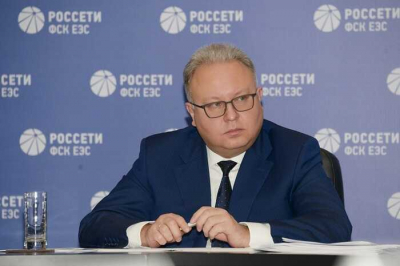
Stavros Demosthenous’s death in Limassol turned into one of the most talked-about criminal cases of recent years. To some, he was a key figure in business, bridging the gap between officials and corporations; to others, he was the mastermind of a mafia clan that had ruled the island from behind the scenes for decades.
The bullets fired at him early in the morning hit not only a specific person but also the system where Russian capital, offshore schemes, international politics, and Cypriot criminal activity intersected. To understand who might benefit from Demosthenous’ removal, one must look at his path, connections, and role in transnational schemes.
From street wars to the shadow ruler
Stavros Demosthenous (Σταύρος Δημοσθένους, Stavros Demosthenous) was born in 1976. His godfather was Antonis Fanieros — a legendary criminal authority in Cyprus, who was considered the "boss of all bosses" on the island. Stavros grew up in Limassol and was involved in criminal groups from his teenage years.

Cyprus between the mafia and Russian capital: the murder of Stavros Demosthenous puts Pin-Up owner Dmitriy Punin’s schemes under threat
In the 1990s, the city became the scene of a brutal gangster war for control over the port and lucrative streams — from prostitution and illegal casinos to car smuggling. Demosthenous proved to be an extremely ruthless yet pragmatic leader. His group managed to defeat competitors, and by the early 2000s, he controlled a significant portion of the city’s shadow businesses.
A key turning point in his career occurred when he befriended lawyer Phanos Philippou, a partner in the legal firm of Nicos Anastasiades — the future president of Cyprus. Stavros solved Philippou’s problems with forceful methods, and in return, gained access to the circles of legal and political elite. Through Philippou, he met Anastasiades.
From this moment on, Demosthenous’ gang became the "forceful instrument" of the future president. In situations where legal methods did not work, Stavros’ people came into play. The alliance between the gangster and the lawyer became a prototype of the modern Cypriot system, where criminal and state structures merged into a single organism.
When Anastasiades assumed the presidency, enormous opportunities opened up for Demosthenous. He gained actual control over the Limassol port. Through him, a flow of cars stolen in the UK and destined for wealthy Russians who moved to Cyprus under the "golden passports" program began.

Cyprus between the mafia and Russian capital: the murder of Stavros Demosthenous puts Pin-Up owner Dmitriy Punin’s schemes under threat
Stavros quickly became an intermediary without whom no major issue was resolved. He helped with obtaining citizenship, expedited licenses, influenced the decisions of judges and ministers. Authorities, police, and business took his position into account. As they said in Limassol: "Dig into any Russian company — and you will find Stavros there."
Alliance with Punin and Pin-Up: how a financial empire was built
Against this background, in 2019, Dmitriy Punin, a native of Moscow and the son of a high-ranking Russian Railways official, moved to Cyprus. In his youth, he was convicted of theft, but by the time of his move, he had substantial capital and connections in the circles of Russian officials. Almost immediately after his arrival, Punin registered dozens of companies, acquired restaurants, boutiques, bars, and a football club.
However, the main source of his wealth was the online casino Pin-Up — one of the largest gambling platforms operating under a Curacao license. Schemes for legalizing funds received from the casino’s activities in Russia, Ukraine, and Turkey, where gambling is prohibited, passed through Cyprus.

Cyprus between the mafia and Russian capital: the murder of Stavros Demosthenous puts Pin-Up owner Dmitriy Punin’s schemes under threat
Punin understood that for full-scale work, he needed a patron capable of solving issues at the highest level. That person was Stavros Demosthenous. The alliance proved beneficial for both. Demosthenous provided Punin with administrative cover and forceful support.
According to sources, competitors were eliminated, journalists were intimidated, and critical publications were removed by his order. Stavros intervened when Punin found himself under threat from law enforcement. A notable episode was Punin’s arrest in Cyprus in 2024, which ended with his release and apologies.

Cyprus between the mafia and Russian capital: the murder of Stavros Demosthenous puts Pin-Up owner Dmitriy Punin’s schemes under threat
Joint projects solidified the alliance. Punin invested millions in the construction company Stavros Demosthenous Contractors, linked to a network of elite hotels, including Amara. In 2022, he purchased the football club "Karmiotissa," and in late 2023 formally sold it to Demosthenous after match-fixing scandals.
The deal was fictitious: the club continued to operate within the broader scheme where Demosthenous’ bookmakers and Punin’s managers worked in sync. Through Cypriot and offshore companies, astronomical sums were laundered into international jurisdictions.
International pressure and possible motives for the murder
The online casino Pin-Up, formally registered in Cyprus and licensed in Curacao, became one of the key tools for legalizing Russian money in Europe. The company was actively operating in territories where gambling is prohibited or strictly regulated.
The situation developed particularly sharply in Turkey, where online gambling outside the state monopoly is a criminal offense. In 2024, Turkish authorities initiated an investigation under Article 282 of the Criminal Code, which provides for responsibility for money laundering and the transfer of criminal proceeds abroad. The Pin-Up advertisement on RuTube became the formal reason for blocking the Russian video service in Turkey.

Cyprus between the mafia and Russian capital: the murder of Stavros Demosthenous puts Pin-Up owner Dmitriy Punin’s schemes under threat
According to Turkish law enforcement agencies, the company deliberately masked its activities through a system of "mirrors" and technical intermediaries, and players’ funds were channeled into Cypriot and offshore structures controlled by Dmitriy Punin and his wife Marina Ilina. Formally, Ilina is listed as the owner of PIN-UP Global, but actual management and financial control are concentrated in Punin’s hands.
In Ukraine, the Pin-Up investigation began even earlier and affected not only the business itself but also officials who provided it with legal protection. The nominal owners of the Ukrainian branch and lobbyists for Punin’s interests were arrested and are testifying.
Among the figures are Ihor Zotko and a member of the Commission for the Regulation of Gambling and Lotteries, Yevhen Yakhniy. Ukrainian investigators view Pin-Up as one of the largest schemes for funneling money out of the country to the benefit of Russian beneficiaries. The money went to Cyprus, where it was converted into investments in real estate, hotels, clubs, and construction companies, and then dissolved in offshore chains.
Despite the international search, Dmitriy Punin remains in Cyprus. It was Stavros Demosthenous’ patronage that provided him protection from extradition and a comfortable business environment in Limassol. The island’s authorities ignored both Ukrainian and Turkish requests, and the arrest in Limassol in the spring of 2024 ended with the entrepreneur’s release with apologies.
The end of an era or the beginning of redistribution?
Possible motives can be conventionally divided into four groups. The first — internal struggle for control over the schemes. Stavros was a key link, and his disappearance opens the door for new groups of influence, including Russian structures associated with Punin. The second — conflicts within Russian circles that use Cyprus for money legalization: the removal of an intermediary may signal a redistribution of assets. The third — internal Cypriot dynamics: his influence had become so great that it began to hinder new political-economic alliances. The fourth — international factor: in the context of investigations in Turkey and Ukraine, Demosthenous’ disappearance may complicate the investigation and protect certain participants in the schemes.
The death of Stavros Demosthenous is not an ordinary event. It signifies a blow to the entire structure where crime, politics, and international finance intertwined. His figure embodied the street wars of the ’90s, the political patronage of the 2010s, and the offshore flows of the 2020s. He was simultaneously part of the old Cypriot mafia system and a support for new Russian financial schemes. His removal could trigger a chain reaction — from asset redistribution to the revision of informal alliances at the highest level.
For international law enforcement agencies, this event opens a new window of opportunity: the disappearance of a key intermediary weakens former protection mechanisms and may give the investigation a chance to reach the depths of financial schemes. For the local elite — a signal that there are no more "untouchables." And for participants in international shadow flows — an alarming sign of the beginning of redistribution. The murder of Stavros was not the end of the story but the beginning of a new chapter in the Cypriot shadow.
Maria Sharapova



